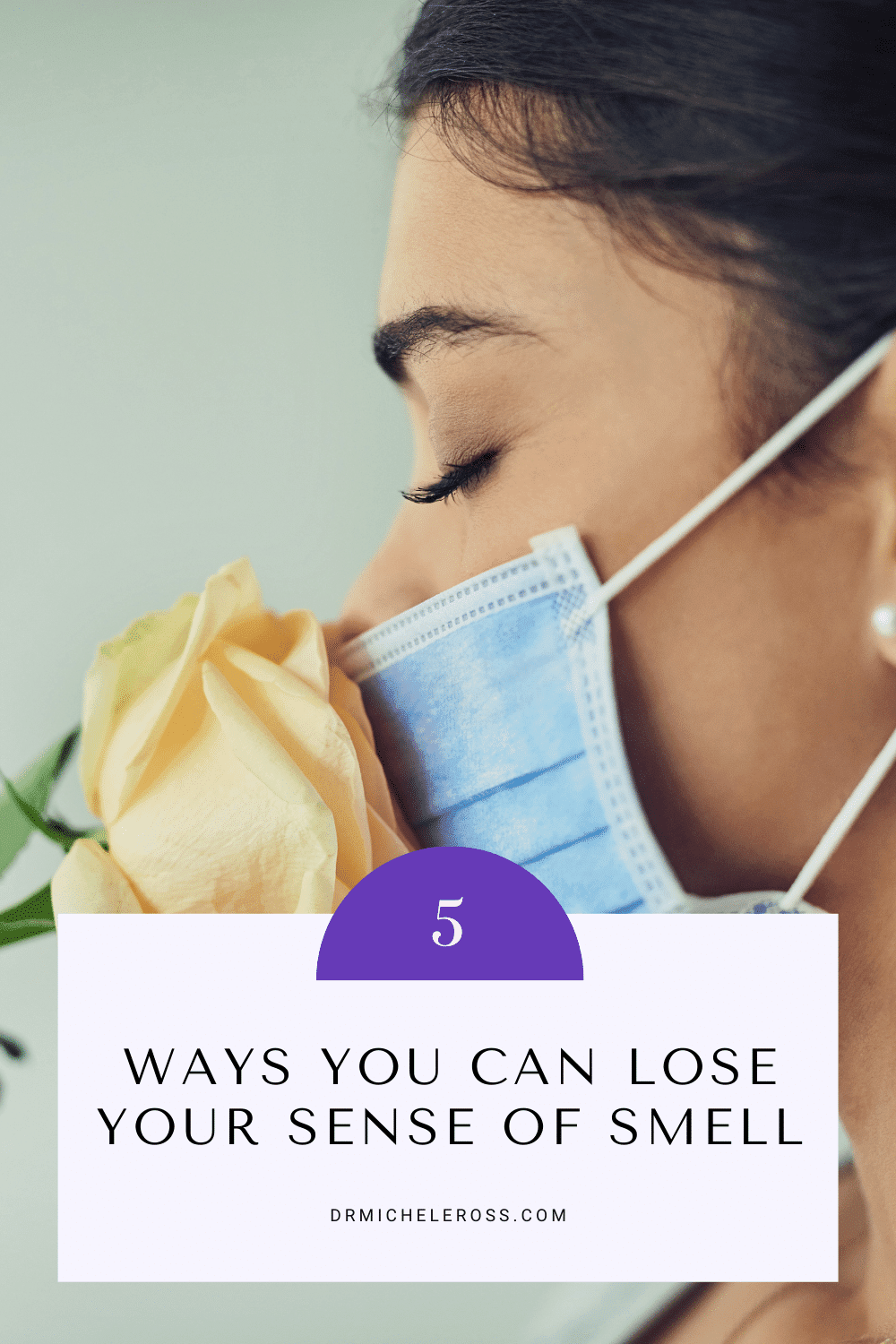
Is your sense of smell or taste fading away? Or did it vanish overnight. Keep calm and find out why this might be happening to you.
Reasons why you might lose your sense of smell
Loss of sense of smell, known as anosmia, and taste, known as ageusia, can stem from three main causes: obstruction of the nose, damage to the nose lining, or damage to the olfactory nerve or parts of the brain that deal with smell and taste. Because sense of smell is required for the sense of taste, when patients become anosmic they often lose their sense of taste as well.
Coronavirus Infection (COVID)
Some patients infected with COVID-19 experience a loss of sense of smell and taste for up to two weeks, while others claims they smell gasoline or have a metallic taste in their mouth. For some patients, it’s their only symptom and way to potentially tell that they are infected. For other patients, a fever, dry cough, and other symptoms present in addition to anosmia. It is unclear how fast the sense of smell and taste come back after patients successfully recover from the virus, or if this is a permanent condition for some patients, especially those diagnosed with Long-Covid.

Eating a Pot Brownie
While smoking marijuana appears to increase appetite, partly by increasing your sense of smell, it appears eating cannabis has the opposite effect. Eating a weed edible or THC capsule can cause your sense of smell to be greatly reduced.
Taking 20 mg of THC, the active ingredient in cannabis, has been shown in clinical research studies to reduce the ability to smell overall as well as the ability to differentiate between similar odors. This dose is twice the standard edible dose of 10 mg recommended in many states with Recreational Marijuana dispensaries, but is a common dose for patients managing pain or consumers trying to get high and relax.
Another study found the same 20 mg oral dose of THC caused vanilla smell to be less pleasurable, reinforcing that eating cannabis at moderate doses does impact your sense of smell.
Any reduction in sense of smell from eating THC is going to be temporary, and shouldn’t last beyond a day or two. It’s important to note that smaller doses of THC, such as a 5 mg cannabis gummy, may have less of an impact on your sense of smell than a 20 mg cannabis gummy. Finally, CBD products like CBD oil or CBD gummies, which contain little or no THC, shouldn’t impact your sense of smell at all.

Olfactory Nerve or Brain Damage
Degenerative diseases, head injury and surgery all can lead to olfactory pathway damage, leading to anosmia. Alzheimer’s disease, a progressive neurodegenerative disease characterized by memory loss and confusion, can lead to destruction of the olfactory bulb and olfactory pathways. Anosmia may be one of the first symptoms of Alzheimer’s. Huntington’s disease and Parkinson’s disease as well as diabetes and multiple sclerosis, can also cause anosmia. Schizophrenia, a mental illness characterized by hallucinations and delusions, also can cause anosmia.
Head injury can also cause anosmia. Brain surgery, brain radiation, brain tumors, or brain infections can also cause anosmia. In some cases, shingles are a risk as they can cause long-term nerve pain that may impact your taste and smell. You can research what is the best over the counter medicine for shingles to minimize side effects before they become too severe.
Want to promote brain health? CBD oil or cannabis can help you reduce stress, inflammation, and promote new brain cell growth.

Intranasal Obstruction
Obstruction of the nose can lead to loss of smell. Two common causes of nasal obstruction are allergic rhinitis and nasal polyps. Allergic rhinitis, an allergic reaction to airborne pollen, dander, mites, and other irritants, leads to runny nose, sneezing and lack of smell. Nasal polyps, growths of inflamed tissue inside the nose, can lead to symptoms of a cold and loss of smell.

Olfactory Epithelium Damage
Snorting illegal drugs, such as cocaine and amphetamine, can lead to anosmia, as can repeated exposure to intranasal decongestants or even oral use of estrogen. Some viral upper respiratory infections can cause anosmia, as can chronic sinusitis and atrophic rhinitis. Tumors can also damage the olfactory epithelium, although this is rare. Finally, nasal exposure to toxins, such as cadmium or manganese, can cause anosmia.
Pin This Post







